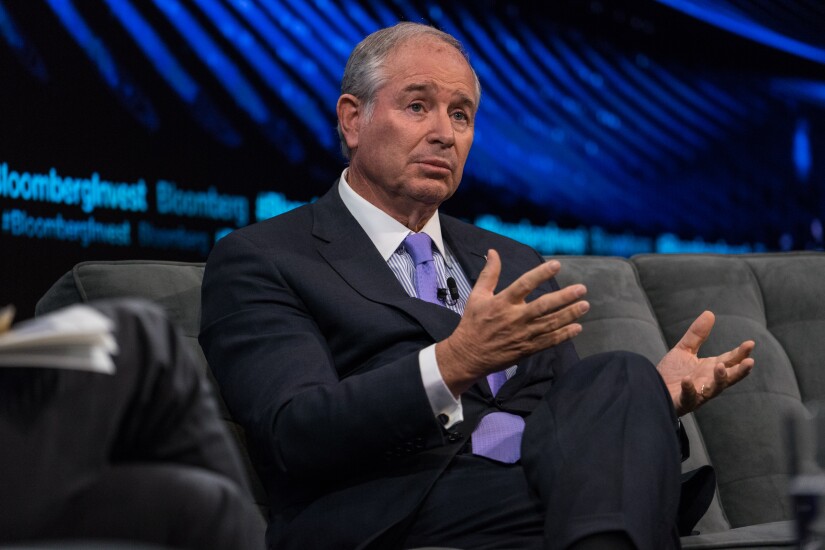
The Paradise Papers
Earlier this week, the International Consortium of Investigative Journalists
Known as the Paradise Papers, the documents originate primarily from Appleby, a Bermuda-based law firm, says the ICIJ. The firm specializes in catering to UHNW clients and blue chip companies, according to its
"The promise of tax havens is secrecy — offshore locales create and oversee companies that often are difficult, or impossible, to trace back to their owners," the ICIJ reported, adding that having an offshore entity is often legal.
Here is a Who's Who of individuals from the financial world identified in the Paradise Papers, along with their offshore connections.
Additional reporting by Sean Allocca

Wilbur Ross
According to
The release of the Paradise Papers has prompted calls for further investigation of Ross' holdings in the Senate.
Dubbed the "King of Bankruptcy," Ross' private equity fund, W. L. Ross & Co., restructured failed companies and sold them later for a profit. The company was one of Appelby's biggest clients,
The Commerce Department said in a statement that "Reports that Secretary Ross did not disclose his Navigator holdings are completely false — they are listed in sections 10.14. 1.3, 10.15. 1.3, and 24.1.4. 2 of his Form 278, which can be viewed by the public on the Office of Government Ethics website
Ross' net worth was

Warren Stephens
What wasn't known — until the release of the Paradise Papers — is that Stephens had a financial interest in an online payday loan company accused by the CFPB of questionable lending practices.
After reviewing the Paradise Papers, the
A spokesperson for Stephens said in a statement that the Times story "was not an accurate representation of Warren Stephens’ personal involvement in Hayfield Investment Partners."
Stephens "never had any involvement in, or knowledge of, the details of Hayfield’s day-to-day activities," the statement continued. "Moreover, there were no offshore accounts established for the Hayfield investment. Neither Warren Stephens, nor any of his employees, had any role in retaining Appleby’s services, nor were they involved in any discussions with Appleby."

Carl Icahn
Appleby documents show that Icahn was a director of a Bermuda-based biotechnology investment company for 11 years. Icahn, who has worked closely with Donald Trump for years and served as a
According to the ICIJ, Icahn used Appleby for tax advice on his holding in a Brazilian mining company that uses
Icahn's office did not respond to a request for comment.

Sheldon Adelson
And according to the Paradise Papers, he did something about it.
Founder and CEO of Las Vegas Sands, one of the world's largest casino operators, the Paradise Papers disclosed that Adelson is also president of Interface Operations, a Bermuda-based company which provided airline services to his casino.
Las Vegas Sands paid tens of millions of dollars to Interface from 2010 to 2016,
Adelson also owns newspapers in Israel and Las Vegas and is a major donor to Republican candidates and conservative causes. His office did not respond to a request for comment.

Gary Cohn
It turns out that Cohn, the president's chief economic advisor and the director of the National Economic Council, was president of 20 companies incorporated in tax-free Bermuda that were affiliated with a fund managed by Goldman Sachs, where he was president and chief operating officer before joining the Trump administration.
Cohn's Bermuda connection lasted from 2002 to 2006,

Paul Singer
Kensington International Ltd ., a holding of Elliott Management, Singer's fund that purchases distressed assets, is registered in the Cayman Islands,
Singer's office did not respond to a request for comment.

Stephen Schwarzman
“Blackstone’s investments are wholly compliant with UK and international tax laws and regulations," a spokesman for Blackstone said. "The property investment structures in question were acquired from institutional investors and are of a type commonly used for decades for investments in UK real estate, including by listed companies and a variety of institutional investors, and were adopted after appropriate advice was taken from leading tax and legal advisers.”

James Simons
The Bermuda address limited the IRS's ability to determine the trust's exact holdings and tax its funds until distributions were made to the Simons family
The New York Times reported
A spokesman for Renaissance declined to comment.





